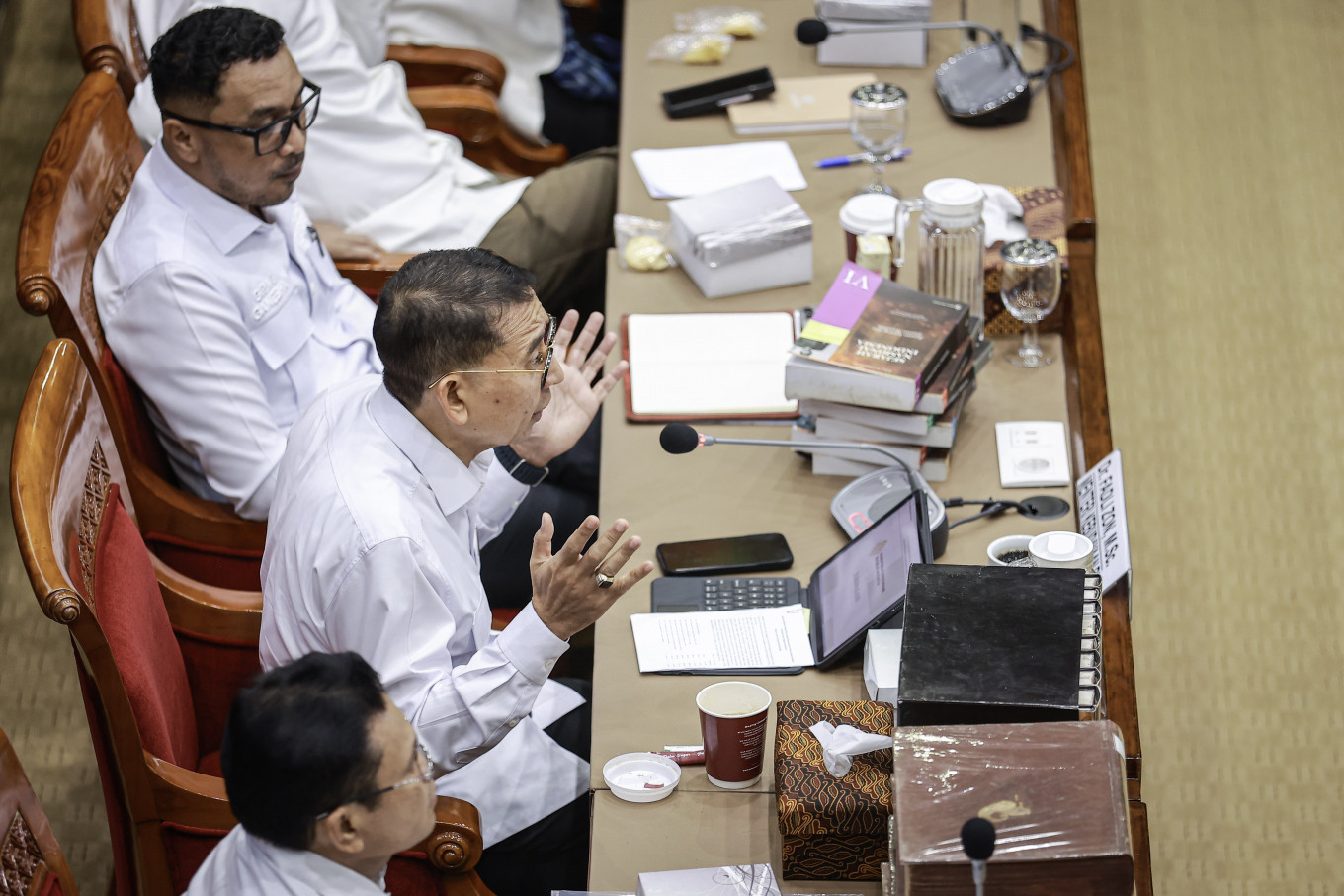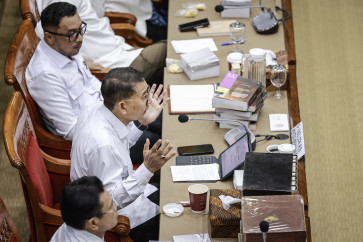Popular Reads
Top Results
Can't find what you're looking for?
View all search resultsPopular Reads
Top Results
Can't find what you're looking for?
View all search resultsRewriting history: Remembering, forgetting and forgiving
Official history can no longer stand alone as the sole arbiter of truth, while public history must cultivate critical discipline to avoid being reduced to mere emotional appeals.
Change text size
Gift Premium Articles
to Anyone
 Culture Minister Fadli Zon (center), accompanied by his deputy Giring Ganesha (top), delivers a presentation during a working meeting with House of Representatives Commission X in Senayan, Jakarta, on May 26, 2025. The meeting discused the ministry’s plan to rewrite the nation's history. (Antara/Dhemas Reviyanto)
Culture Minister Fadli Zon (center), accompanied by his deputy Giring Ganesha (top), delivers a presentation during a working meeting with House of Representatives Commission X in Senayan, Jakarta, on May 26, 2025. The meeting discused the ministry’s plan to rewrite the nation's history. (Antara/Dhemas Reviyanto)
T
he postponement of the launch of the 10-volume Indonesian National History on Aug. 17 revealed something fundamental, namely that writing history is never merely the act of compiling a chronology of events. It is also the process of deciding what deserves to be remembered and what, whether deliberately or inadvertently, is left to be forgotten.
Culture Minister Fadli Zon, the official behind the controversial project, said the postponement was necessary to accommodate all input so that it becomes a comprehensive national history book. The new date has been set at October or November at the latest.
The controversy emerged because many historians and members of the public felt that the official manuscript diminished or even overlooked crucial chapters, including the 1965-1966 tragedy and the struggles of activists in 1998.
This leads to a pressing question: Is the state truly seeking to present an objective “official history”, or is it, in fact, crafting a political narrative, one that excludes collective memories deemed too unsettling or inconvenient?
In his reflections on memory and history (Memory, 2006), the French philosopher, Paul Ricœur, draws a distinction between remembering, forgetting and forgiving. He warns of the dangers of excessive remembrance, when past traumas are transmitted without reflection or transformation. Yet he is equally wary of historical amnesia, the deliberate erasure or suppression of events in pursuit of a fragile illusion of stability.
For Ricœur, collective memory must be subjected to critical reflection: not to perpetuate resentment, but neither to conceal wounds. This gives rise to a profound ethical question: to what extent may we allow ourselves to forget, and when does forgetting itself become a new form of injustice?
Within this framework, Ricœur envisions an ethics of memory that calls for a careful balance between fidelity to historical truth and openness to reconciliation. Memory is not merely an archive of events, but a living space of dialogue between generations and communities. When nurtured collectively, memory enables society to confront the wounds of the past without becoming ensnared in cycles of hatred, while also resisting the silence that conceals injustice.


















